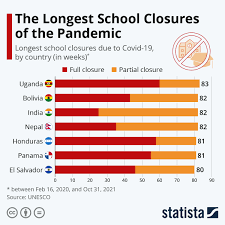Understanding School Closures and Their Impact on Education

The Importance of Addressing School Closures
School closures have become an increasingly pertinent issue, especially in light of recent global events such as the COVID-19 pandemic. These closures not only affect students’ education but have far-reaching implications on mental health, social development, and the overall education system. As education authorities grapple with these challenges, understanding the underlying causes and consequences of school closures is more essential than ever.
Recent Events Surrounding School Closures
In the UK, the surge in school closures has been influenced by various factors, including health concerns, economic crises, and the shift towards digital learning. Recent government statistics revealed that around 35% of schools across the UK faced temporary closures in the past academic year due to COVID-19 variants and subsequent restrictions. Additionally, severe weather events, such as flooding and storms, have also contributed to sporadic closures, leading to disruptions in students’ learning experiences.
The Impact of Closures on Students and Families
Research has shown that prolonged school closures can have detrimental effects on student learning outcomes. The Education Endowment Foundation reported that students are, on average, 3 to 6 months behind in their studies due to interruptions caused by closures. For disadvantaged students, this gap may be even more pronounced. Furthermore, the lack of structured learning can lead to increased anxiety and feelings of isolation among students, negatively impacting their mental health.
Long-Term Implications for the Education System
As schools adapt to the evolving landscape of education, the long-term implications of repeated closures must be addressed. Educational leaders are advocating for hybrid learning models that incorporate both in-person and digital methods, ensuring that students can access quality education regardless of circumstances. However, investing in technology and creating robust support systems will be essential to mitigate the impact of future closures.
Conclusion: A Call for Action
In conclusion, school closures present a significant challenge that necessitates immediate attention and action from policymakers, educators, and families alike. By understanding the causes and consequences of these disruptions, stakeholders can work together to create resilient educational frameworks that safeguard the future of learning. As we look ahead, addressing the root causes of school closures and implementing proactive strategies will be vital to ensuring that our education system can withstand the challenges posed by unforeseen events.









